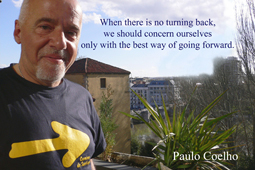 * Her heart did whisper that he had
done it for her. But it was a hope
shortly checked by other
considerations, and she soon felt
that even her vanity was
insufficient, when required to
depend on his affection for her— for
a woman who had already refused him—
as able to overcome a sentiment so
natural as abhorrence against
relationship with Wickham.
Brother-in-law of Wickham! Every
kind of pride must revolt from the
connection. He had, to be sure, done
much. She was ashamed to think how
much. But he had given a reason for
his interference, which asked no
extraordinary stretch of belief. It
was reasonable that he should feel
he had been wrong; he had
liberality, and he had the means of
exercising it; and though she would
not place herself as his principal
inducement, she could, perhaps,
believe that remaining partiality
for her might assist his endeavours
in a cause where her peace of mind
must be materially concerned. It was
painful, exceedingly painful, to
know that they were under
obligations to a person who could
never receive a return. (Ch. 52).
* Her heart did whisper that he had
done it for her. But it was a hope
shortly checked by other
considerations, and she soon felt
that even her vanity was
insufficient, when required to
depend on his affection for her— for
a woman who had already refused him—
as able to overcome a sentiment so
natural as abhorrence against
relationship with Wickham.
Brother-in-law of Wickham! Every
kind of pride must revolt from the
connection. He had, to be sure, done
much. She was ashamed to think how
much. But he had given a reason for
his interference, which asked no
extraordinary stretch of belief. It
was reasonable that he should feel
he had been wrong; he had
liberality, and he had the means of
exercising it; and though she would
not place herself as his principal
inducement, she could, perhaps,
believe that remaining partiality
for her might assist his endeavours
in a cause where her peace of mind
must be materially concerned. It was
painful, exceedingly painful, to
know that they were under
obligations to a person who could
never receive a return. (Ch. 52).
* "If Mr. Darcy is neither by honour
nor inclination confined to his
cousin, why is not he to make
another choice? And if I am that
choice, why may not I accept him?"
"Because honour, decorum, prudence,
nay, interest, forbid it. Yes, Miss
Bennet, interest; for do not expect
to be noticed by his family or
friends, if you wilfully act against
the inclinations of all. You will be
censured, slighted, and despised, by
everyone connected with him. Your
alliance will be a disgrace; your
name will never even be mentioned by
any of us."
"These are heavy misfortunes,"
replied Elizabeth. "But the wife of
Mr. Darcy must have such
extraordinary sources of happiness
necessarily attached to her
situation, that she could, upon the
whole, have no cause to repine."
(Ch. 56).
* "Miss Bennet I am shocked and
astonished. I expected to find a
more reasonable young woman. But do
not deceive yourself into a belief
that I will ever recede. I shall not
go away till you have given me the
assurance I require."
"And I certainly never shall give
it. I am not to be intimidated into
anything so wholly unreasonable.
Your ladyship wants Mr. Darcy to
marry your daughter; but would my
giving you the wished-for promise
make their marriage at all more
probable? Supposing him to be
attached to me, would my refusing to
accept his hand make him wish to
bestow it on his cousin? Allow me to
say, Lady Catherine, that the
arguments with which you have
supported this extraordinary
application have been as frivolous
as the application was ill-judged.
You have widely mistaken my
character, if you think I can be
worked on by such persuasions as
these. How far your nephew might
approve of your interference in his
affairs, I cannot tell; but you have
certainly no right to concern
yourself in mine. I must beg,
therefore, to be importuned no
farther on the subject." (Ch. 56).
* "You are then resolved to have
him?"
"I have said no such thing. I am
only resolved to act in that manner,
which will, in my own opinion,
constitute my happiness, without
reference to you, or to any person
so wholly unconnected with me."
"It is well. You refuse, then, to
oblige me. You refuse to obey the
claims of duty, honour, and
gratitude. You are determined to
ruin him in the opinion of all his
friends, and make him the contempt
of the world."
"Neither duty, nor honour, nor
gratitude," replied Elizabeth, "have
any possible claim on me, in the
present instance. No principle of
either would be violated by my
marriage with Mr. Darcy. And with
regard to the resentment of his
family, or the indignation of the
world, if the former were excited by
his marrying me, it would not give
me one moment's concern— and the
world in general would have too much
sense to join in the scorn." (Ch.
56).
* "Mr. Darcy, you see, is the man!
Now, Lizzy, I think I have surprised
you. Could he, or the Lucases, have
pitched on any man within the circle
of our acquaintance, whose name
would have given the lie more
effectually to what they related?
Mr. Darcy, who never looks at any
woman but to see a blemish, and who
probably never looked at you in his
life! It is admirable!"
Elizabeth tried to join in her
father's pleasantry, but could only
force one most reluctant smile.
Never had his wit been directed in a
manner so little agreeable to her."
* "For what do we live, but to make
sport for our neighbours, and laugh
at them in our turn?"
* "Had they fixed on any other man
it would have been nothing; but his
perfect indifference, and your
pointed dislike, make it so
delightfully absurd! Much as I
abominate writing, I would not give
up Mr. Collins's correspondence for
any consideration."
* "He is a gentleman; I am a
gentleman’s daughter; so far we are
equal" (Ch. 56)
* Elizabeth had never been more at a
loss to make her feelings appear
what they were not. It was necessary
to laugh, when she would rather have
cried. Her father had most cruelly
mortified her, by what he said of
Mr. Darcy's indifference, and she
could do nothing but wonder at such
a want of penetration, or fear that
perhaps, instead of his seeing too
little, she might have fancied too
much. (Ch. 57)
* "You are too generous to trifle
with me. If your feelings are still
what they were last April, tell me
so at once. My affections and wishes
are unchanged, but one word from you
will silence me on this subject for
ever." (Ch. 58)
* Elizabeth, feeling all the more
than common awkwardness and anxiety
of his situation, now forced herself
to speak; and immediately, though
not very fluently, gave him to
understand that her sentiments had
undergone so material a change,
since the period to which he
alluded, as to make her receive with
gratitude and pleasure his present
assurances.
|
The happiness which this reply
produced, was such as he had
probably never felt before; and he
expressed himself on the occasion as
sensibly and as warmly as a man
violently in love can be supposed to
do. Had Elizabeth been able to
encounter his eye, she might have
seen how well the expression of
heartfelt delight, diffused over his
face, became him; but, though she
could not look, she could listen,
and he told her of feelings, which,
in proving of what importance she
was to him, made his affection every
moment more valuable.
They walked on, without knowing in
what direction. There was too much
to be thought, and felt, and said,
for attention to any other objects.
* "It taught me to hope," said he,
"as I had scarcely ever allowed
myself to hope before. I knew enough
of your disposition to be certain
that, had you been absolutely,
irrevocably decided against me, you
would have acknowledged it to Lady
Catherine, frankly and openly."
Elizabeth coloured and laughed as
she replied, "Yes, you know enough
of my frankness to believe me
capable of that. After abusing you
so abominably to your face, I could
have no scruple in abusing you to
all your relations."
* "We will not quarrel for the
greater share of blame annexed to
that evening," said Elizabeth. "The
conduct of neither, if strictly
examined, will be irreproachable;
but since then, we have both, I
hope, improved in civility."
"I cannot be so easily reconciled to
myself. The recollection of what I
then said, of my conduct, my
manners, my expressions during the
whole of it, is now, and has been
many months, inexpressibly painful
to me. Your reproof, so well
applied, I shall never forget: 'had
you behaved in a more gentlemanlike
manner.' Those were your words. You
know not, you can scarcely conceive,
how they have tortured me;— though
it was some time, I confess, before
I was reasonable enough to allow
their justice."
* "You thought me then devoid of
every proper feeling, I am sure you
did. The turn of your countenance I
shall never forget, as you said that
I could not have addressed you in
any possible way that would induce
you to accept me."
* "When I wrote that letter,"
replied Darcy, "I believed myself
perfectly calm and cool, but I am
since convinced that it was written
in a dreadful bitterness of spirit."
"The letter, perhaps, began in
bitterness, but it did not end so.
The adieu is charity itself. But
think no more of the letter. The
feelings of the person who wrote,
and the person who received it, are
now so widely different from what
they were then, that every
unpleasant circumstance attending it
ought to be forgotten. You must
learn some of my philosophy. Think
only of the past as its remembrance
gives you pleasure."
"I cannot give you credit for any
philosophy of the kind. Your
retrospections must be so totally
void of reproach, that the
contentment arising from them is not
of philosophy, but, what is much
better, of innocence. But with me,
it is not so. Painful recollections
will intrude which cannot, which
ought not, to be repelled. I have
been a selfish being all my life, in
practice, though not in principle.
As a child I was taught what was
right, but I was not taught to
correct my temper. I was given good
principles, but left to follow them
in pride and conceit. Unfortunately
an only son (for many years an only
child), I was spoilt by my parents,
who, though good themselves (my
father, particularly, all that was
benevolent and amiable), allowed,
encouraged, almost taught me to be
selfish and overbearing; to care for
none beyond my own family circle; to
think meanly of all the rest of the
world; to wish at least to think
meanly of their sense and worth
compared with my own. Such I was,
from eight to eight and twenty; and
such I might still have been but for
you, dearest, loveliest Elizabeth!
What do I not owe you! You taught me
a lesson, hard indeed at first, but
most advantageous. By you, I was
properly humbled. I came to you
without a doubt of my reception. You
showed me how insufficient were all
my pretensions to please a woman
worthy of being pleased."
* "My object then," replied Darcy,
"was to show you, by every civility
in my power, that I was not so mean
as to resent the past; and I hoped
to obtain your forgiveness, to
lessen your ill opinion, by letting
you see that your reproofs had been
attended to. How soon any other
wishes introduced themselves I can
hardly tell, but I believe in about
half an hour after I had seen you."
* "My dearest sister, now be
serious. I want to talk very
seriously. Let me know every thing
that I am to know, without delay.
Will you tell me how long you have
loved him?"
"It has been coming on so gradually,
that I hardly know when it began.
But I believe I must date it from my
first seeing his beautiful grounds
at Pemberley."
Another entreaty that she would be
serious, however, produced the
desired effect; and she soon
satisfied Jane by her solemn
assurances of attachment.
* "I cannot fix on the hour, or the
look, or the words, which laid the
foundation. It is too long ago. I
was in the middle before I knew that
I had begun." (Mr.Darcy, Chapter 60)
Pride and Prejudice:
#
Chapters 1 - 24
#
Chapters 25 - 36
#
Chapters 37 - 61
Quotes by
Jane
Austen - Letters
Quotes by
Jane Austen -
Sense and Sensibility
(1811)
 More
Quotes by
Jane
Austen More
Quotes by
Jane
Austen
|
Quotes
by
JANE AUSTEN -
from
Pride and Prejudice
Chapters
1 - 24
Chapters
25 - 36
Chapters
37 - 61
Index
of Movies Quotes
LOVE Quotes
Friendship Quotes
Famous People's Quotes











